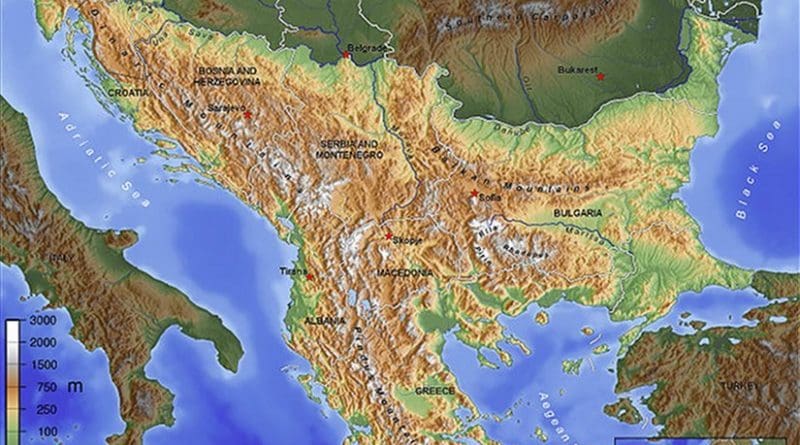Western Balkans Leaders Pledge To Work Together On Deepening Integration Through Trade And Investment
Leaders from the six Western Balkans economies – Serbia, Bosnia and Herzegovina, Montenegro, Kosovo, the former Yugoslav Republic of Macedonia and Albania, met Thursday to boost cross-border cooperation and regional stability.
Meeting under the auspices of the World Economic Forum’s Strategic Dialogue on the Western Balkans, which took place in Sofia, Bulgaria, today, leaders from the six economies pledged to pursue a joint agenda focused on three clear goals” strengthening growth through public-private partnership; driving a future-oriented digital ecosystem; and supporting next-generation leadership.
The move follows an initial meeting of leaders from the six economies at the World Economic Forum Annual Meeting 2018 in Davos-Klosters, Switzerland. More than 50 regional and international leaders from government and business participated in today’s meeting. Reflecting the region’s significance, the meeting was opened by Boyko Borissov, Prime Minister of Bulgaria and Sebastian Kurz, Federal Chancellor of Austria. Other speakers include Suma Chakrabarti, President of the European Bank for Reconstruction and Development, Kristalina Georgieva, Chief Executive Officer of the World Bank and Werner Hoyer, President of the European Investment Bank.
“Today the leaders of the Western Balkans have signalled their serious intent to look to the future and transform their economies and their region and together work to advance the stability and prosperity the people of this region so richly deserve. The Western Balkans have the potential to become a new hub for growth and investment and the World Economic Forum is keen to provide a platform for this important dialogue and catalyse initiatives, which also bring together the business leaders and next generation to create investment, jobs and skills,” said Borge Brende, President, Member of the Managing Board, World Economic Forum.
“Helping restore the Western Balkans on a path towards stability and prosperity will be one of the priorities of Austria’s upcoming presidency of the European Union. I see this meeting as an important milestone towards this goal,” said Kurz.
The meeting also convened a session focusing on transport infrastructure, where transport ministers from all six Western Balkans economies committed to expand efforts to improve physical and digital connectivity.
According to the World Economic Forum’s Global Competitiveness Report 2017-2018, the economies of the Western Balkans are among the least competitive in Europe. Of the four measured in the report, Albania ranks the highest, at 75 in the global ranking, closely followed by Montenegro (77) and Serbia (78). Bosnia and Herzegovina is the least competitive of the four, ranking 103.
Representing the six Western Balkans economies at today’s meeting were; Ana Brnabic, Prime Minister of Serbia; Zeljka Cvijanovic, Prime Minister of the Srpska Republic, Bosnia and Herzegovina; Dusko Markovic, Prime Minister of Montenegro; Edi Rama, Prime Minister of Albania; Hashim Thaci, President of Kosovo; and Kocho Angjushev, Deputy Prime Minister of the former Yugoslav Republic of Macedonia.

